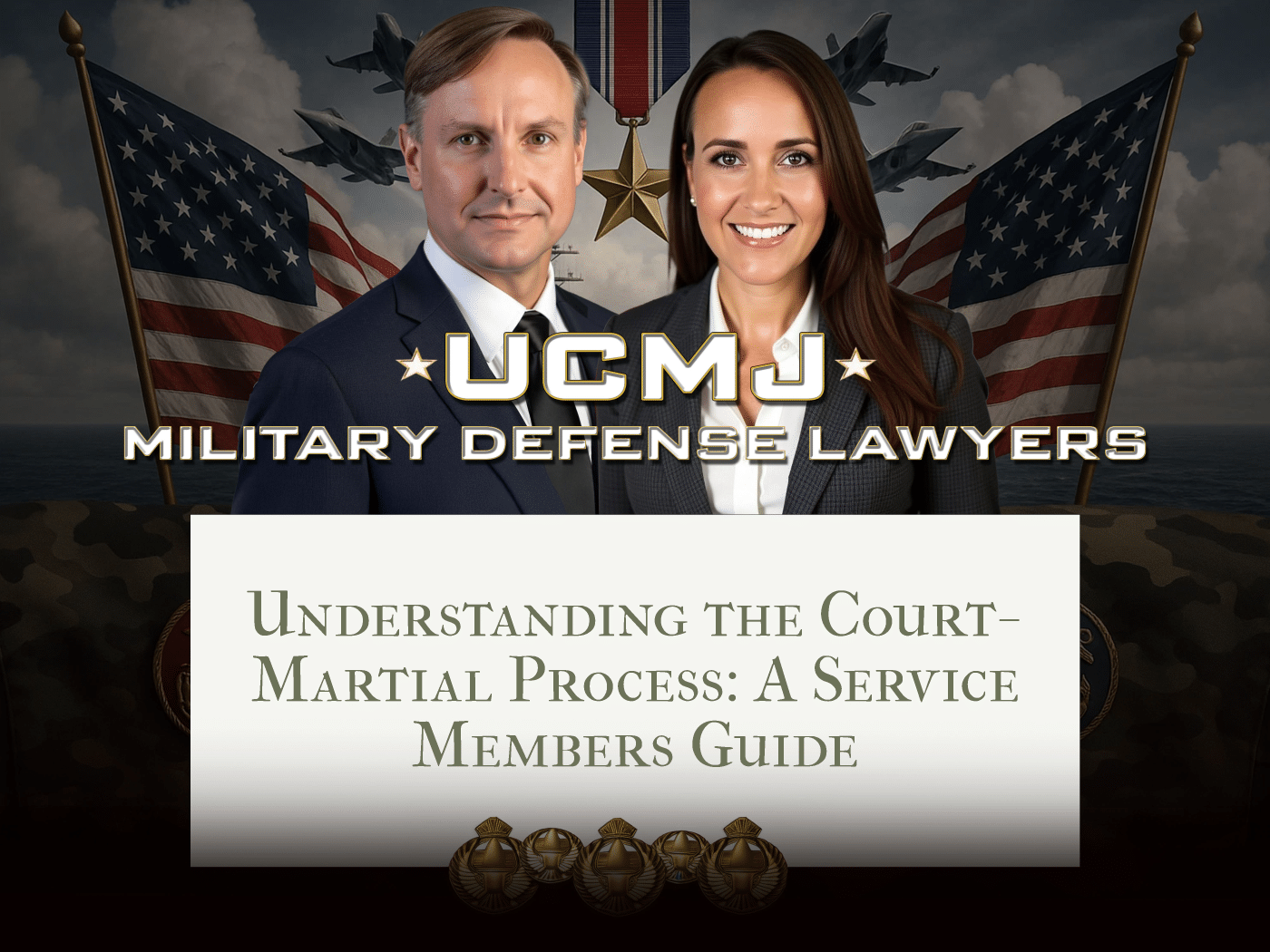Facing a court-martial can be one of the most stressful experiences a service member may endure. Whether you’re stationed locally or overseas, understanding the Court-Martial Process is crucial to protecting your rights, your career, and your future. The fear of the unknown can often cause more anxiety than the process itself. That’s why gaining clarity and confidence about how military justice operates is essential. For service members, being informed is the first step toward taking control of your situation. This guide walks you through what to expect, why it matters, and how to face the process with the right support and knowledge. From the types of court-martial to potential outcomes and long-term consequences, we provide a clear and detailed explanation. If you or a loved one is navigating military legal challenges, this guide will offer a helpful starting point and illuminate the path forward through what can be a daunting system.
Understanding the Basics of the Court-Martial Process
The court-martial process refers to the military’s judicial system for handling criminal charges against service members. It’s similar in some ways to civilian court proceedings, but with key differences tailored to military life and structure. Courts-martial fall under the Uniform Code of Military Justice (UCMJ), which sets legal standards for armed forces worldwide.
There are three main types of courts-martial: summary, special, and general. A summary court-martial handles minor offenses and can result in reduced ranks or pay. A special court-martial resembles a misdemeanor trial, and a general court-martial handles the most serious offenses, such as desertion or assault. For example, a Marine accused of unauthorized absence may face a special court-martial where the potential consequences involve confinement or discharge. On the other hand, an officer charged with a serious breach of conduct, such as fraud or assault, might be tried in a general court-martial where the stakes are higher, including the possibility of a dishonorable discharge or imprisonment.
Understanding which type of court-martial applies to your situation is an essential first step. Each process varies in formality, procedure, and potential outcomes. Clarity on these distinctions can help you prepare more effectively for what lies ahead.
Why the Court-Martial Process Is Important to Understand
The consequences of a court-martial can affect every part of your military and personal life. From loss of career opportunities to long-lasting legal records, what happens during the process can shape your future in serious ways. Knowing what to expect and how to respond ensures you can make informed decisions and safeguard your rights.
Ignoring the court-martial process or approaching it unprepared can lead to devastating results. The stakes are simply too high to go in blind. Whether you’re a new recruit or a seasoned officer, understanding this legal process empowers you to defend yourself and secure a favorable outcome—or at least, a fair one.
- Scenario 1: A soldier facing a general court-martial without legal representation could end up with a dishonorable discharge, permanently impacting civilian career opportunities.
- Scenario 2: A sailor misunderstanding the charges during a special court-martial might unintentionally plead guilty, resulting in unnecessary jail time.
- Scenario 3: An airman stationed overseas who isn’t aware of jurisdictional rules during court-martial may see their leave revoked and rank reduced unnecessarily.
A Closer Look at How the Court-Martial Process Works Around the World
- Step 1: An allegation or incident is reported. Command investigates or refers it to military law enforcement like CID or NCIS, depending on the branch.
- Step 2: The Convening Authority—typically your commanding officer—reviews findings and decides whether to proceed with an Article 15, summary court-martial, or request formal charges.
- Step 3: If charges are filed, the accused is entitled to legal representation. The trial proceeds with evidence, witnesses, testimony, and a verdict. Sentencing follows if there is a conviction.
Strategies to Manage the Court-Martial Process Successfully
Answers to Common Questions About the Global Court-Martial Process
How Gonzalez & Waddington Helps Service Members in Your Situation
Gonzalez & Waddington is deeply experienced in defending service members facing courts-martial across all branches and global locations. With decades of combined legal expertise in military defense, our attorneys know the intricacies of the UCMJ and how to build a strong defense under pressure. We have defended hundreds of cases ranging from minor infractions to serious felony-level charges.
What sets us apart is our dedication to preserving your career, record, and dignity. We provide unique insights, tailored strategies, and aggressive representation, whether your court-martial is happening in the continental U.S. or abroad. Our goal is to ease the burden on you by guiding every step, preparing you thoroughly, and advocating for the best possible outcome.
When your future is on the line, peace of mind matters. Trusting your defense to Gonzalez & Waddington means choosing confidence, legal skill, and unwavering commitment to justice.


